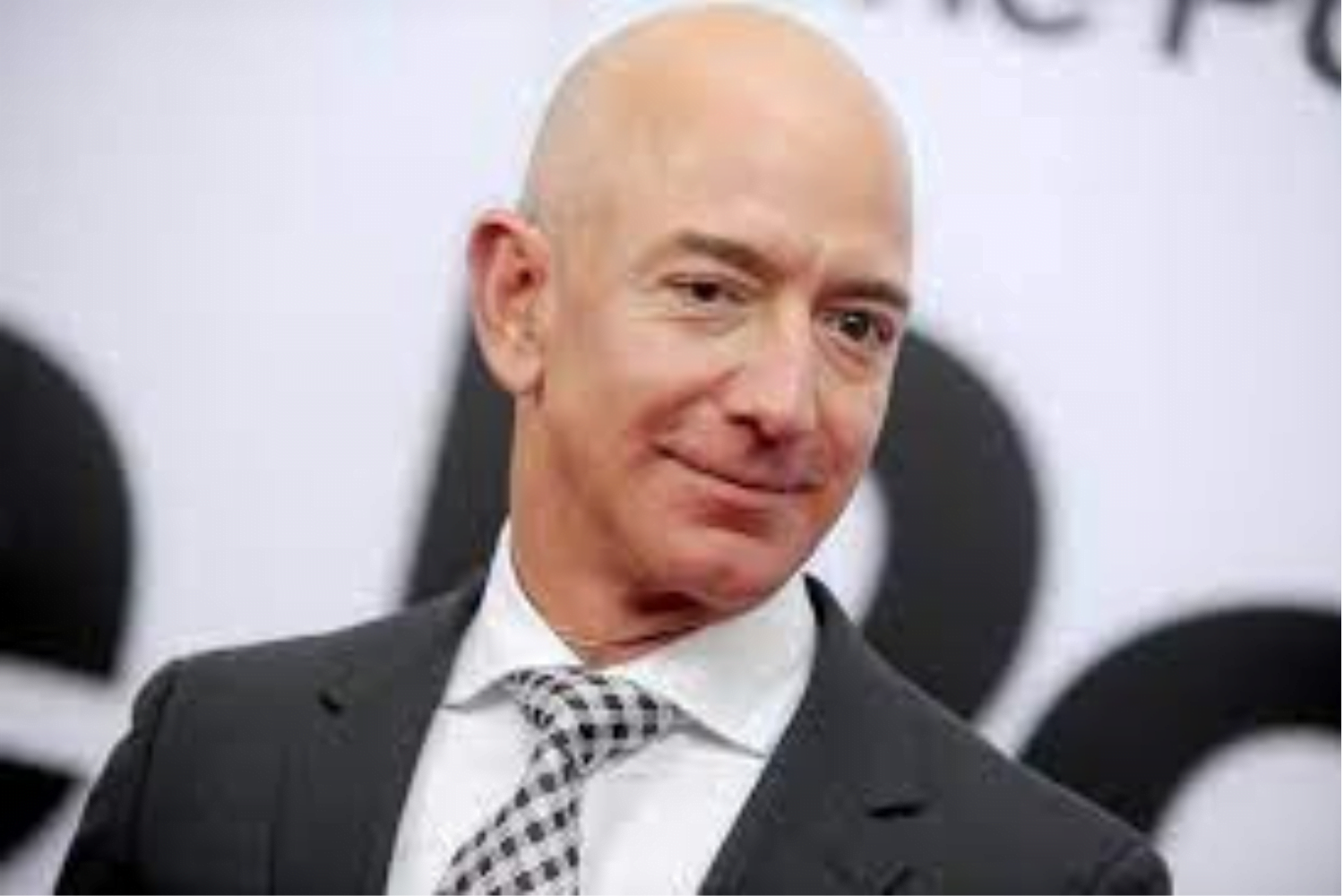Inspirational lessons from Jeff Bezos for Entrepreneurs: Jeff Bezos, the founder of Amazon, is not just a successful entrepreneur; he is a visionary leader who has reshaped the e-commerce landscape. This article delves deeper into the inspirational lessons entrepreneurs can glean from Bezos’ remarkable journey and explores how these lessons can be applied to different aspects of business.
Introduction
Jeff Bezos stands as a beacon of entrepreneurial success, having transformed Amazon from a humble online bookstore into an e-commerce behemoth. His journey holds invaluable lessons for aspiring entrepreneurs who seek not only financial success but also impactful leadership. Understanding and implementing these lessons can set the foundation for a thriving and sustainable business.
Visionary Leadership
Inspirational lessons from Jeff Bezos for Entrepreneurs: Jeff Bezos’ vision for Amazon extended far beyond the realm of a typical online bookstore. His foresight and audacious goals set the tone for what would become the “everything store.” Visionary leadership, as demonstrated by Bezos, involves having a clear and compelling vision for the future. Entrepreneurs should take inspiration from Bezos and strive to articulate a vision that goes beyond products or services, encompassing a broader purpose that resonates with employees, customers, and stakeholders.
To further illustrate the significance of visionary leadership, let’s explore other successful leaders who embraced a similar approach. Elon Musk’s ambitious goal of making humanity multi-planetary with SpaceX and Steve Jobs’ vision of creating revolutionary products at Apple are prime examples. These leaders not only envisioned the future but also rallied their teams to achieve seemingly impossible feats.
Customer-Centric Approach
Amazon’s customer-centric philosophy is central to its success. Bezos prioritized customer satisfaction above short-term profits, recognizing that happy customers are loyal customers. This approach goes beyond mere transactions; it involves building relationships and delivering value consistently.
Examining case studies of businesses that have succeeded with a customer-centric approach provides concrete examples. Companies like Zappos and Ritz-Carlton have built their brands on exceptional customer service, creating memorable experiences that lead to customer loyalty. Entrepreneurs can draw insights from these cases to implement personalized customer experiences, tailoring their offerings to meet specific needs and preferences.
Innovation and Risk-Taking
Bezos’ emphasis on innovation has been a driving force behind Amazon’s continual growth. For entrepreneurs, embracing innovation is not just about introducing new products; it’s about finding novel solutions to existing problems and staying ahead of the curve. Bezos was not afraid to take risks, but these were calculated risks informed by market research and a deep understanding of customer needs.
Inspirational lessons from Jeff Bezos for Entrepreneurs: Real-world examples of companies that have benefited from calculated risks can illuminate the impact of this approach. Tesla’s foray into electric vehicles, despite skepticism from the automotive industry, is a testament to the rewards of bold and calculated risk-taking. Entrepreneurs should study such cases and learn how to assess and manage risks effectively to drive innovation in their ventures.
Adaptability in Business
Amazon’s evolution from an online bookstore to a diversified e-commerce platform showcases the importance of adaptability in business. The ability to pivot and embrace change is crucial for long-term success, especially in industries prone to rapid transformation.
Exploring strategies for businesses to stay adaptable in a changing market can provide practical insights. Successful companies often invest in continuous market research, monitor industry trends, and foster a culture that embraces change. Conversely, case studies of businesses that failed due to a lack of adaptability underscore the consequences of resisting change and remaining static in a dynamic environment.
Work-Life Balance
Inspirational lessons from Jeff Bezos for Entrepreneurs: Bezos’ perspective on work-life balance challenges the stereotype of the workaholic entrepreneur. Entrepreneurs can learn from Bezos’ insights and strive to achieve a healthy balance between professional and personal life.
Practical tips for entrepreneurs to achieve work-life balance include setting boundaries, prioritizing tasks, and recognizing the importance of mental health. Research has consistently shown that burnout negatively impacts business productivity and creativity, making it imperative for entrepreneurs to prioritize their well-being.
Building a Strong Company Culture
Amazon’s unique company culture, characterized by principles like customer obsession and long-term thinking, has played a pivotal role in its success. Establishing a positive work culture is not limited to large corporations; it is equally important for small businesses and startups.
Entrepreneurs should take steps to foster a positive work environment by defining and prioritizing values, encouraging open communication, and promoting inclusivity. The influence of company culture on employee satisfaction and retention cannot be overstated, making it a critical element for sustained business success.
Dealing with Failures
Jeff Bezos’ approach to failures is encapsulated in his famous quote, “Failure and invention are inseparable twins.” Entrepreneurs should embrace the concept of failing forward, viewing setbacks as opportunities for learning and improvement.
An in-depth exploration of failing forward can involve studying famous entrepreneurs who faced significant failures but ultimately triumphed. Walt Disney’s early bankruptcy and subsequent creation of the iconic Mickey Mouse, and Oprah Winfrey’s challenging journey to success are compelling stories that highlight the resilience required to overcome failures.
Global Expansion Strategies
Amazon’s global success is a result of effective expansion strategies. Entrepreneurs aspiring to go global must carefully plan and execute their international ventures, considering cultural nuances, regulatory challenges, and market dynamics.
Key considerations and challenges in expanding a business internationally include understanding local customer behaviors, adapting marketing strategies, and navigating legal and logistical complexities. Examining case studies of companies that successfully expanded globally, such as McDonald’s and Coca-Cola, provides practical insights into the strategies employed for international success.
E-commerce and Technology Trends
Jeff Bezos’ foresight in recognizing the potential of e-commerce and embracing technological advancements has been instrumental in Amazon’s success. Entrepreneurs must stay abreast of current and future trends in e-commerce and technology to remain competitive.
Current e-commerce and technology trends include the rise of mobile commerce, the integration of artificial intelligence in customer experiences, and the growing importance of sustainability in consumer choices. Practical advice for entrepreneurs involves leveraging emerging technologies to enhance customer experiences, streamline operations, and stay ahead of industry shifts.
Building a Personal Brand
Jeff Bezos is not just the face of Amazon; he has built a personal brand synonymous with innovation and success. Entrepreneurs can learn the importance of establishing and promoting their personal brand, which can significantly contribute to the success of their ventures.
Detailed steps for entrepreneurs to build and promote their personal brand include defining a unique value proposition, leveraging social media, and consistently delivering on brand promises. The impact of a strong personal brand extends beyond individual recognition; it positively influences the perception and trustworthiness of the associated business.
Investing in Employee Development
Amazon’s commitment to employee growth has been a key factor in its success. Entrepreneurs should recognize the value of investing in employee development, creating a culture of continuous learning and skill enhancement.
Specific strategies for businesses to invest in employee development include providing training opportunities, offering mentorship programs, and recognizing and rewarding employee contributions. Case studies of companies with successful employee development programs, such as Google and Microsoft, exemplify the positive impact of prioritizing the growth and well-being of employees.
Sustainable Business Practices
Jeff Bezos has demonstrated a commitment to sustainability through initiatives like The Climate Pledge. Entrepreneurs should consider the environmental impact of their businesses and integrate sustainable practices for long-term success.
The growing importance of sustainability in business is driven by consumer demand for eco-friendly products and corporate responsibility. Practical steps for entrepreneurs to integrate sustainable practices include reducing waste, adopting renewable energy sources, and transparently communicating sustainability efforts to customers.
Financial Management
Jeff Bezos’ financial acumen has been crucial in Amazon’s success. Entrepreneurs should prioritize sound financial management, understand the financial health of their businesses, and make strategic decisions accordingly.
Advanced financial management techniques for entrepreneurs involve detailed budgeting, risk assessment, and strategic financial planning. The relationship between financial stability and business resilience becomes apparent in challenging economic climates, emphasizing the need for entrepreneurs to make informed and forward-thinking financial decisions.
Conclusion – Inspirational Lessons From Jeff Bezos For Entrepreneurs
In conclusion, Jeff Bezos’ journey offers a rich tapestry of inspirational lessons for entrepreneurs. From visionary leadership to embracing failures and staying adaptable, each lesson is interconnected, contributing to a holistic understanding of what it takes to build a successful venture. Aspiring entrepreneurs should not merely admire Bezos’ achievements but actively incorporate these lessons into their entrepreneurial journeys, adapting them to their unique circumstances.
Frequently Asked Questions
Q: How did Jeff Bezos transform Amazon into an e-commerce giant?
A: Bezos’ visionary leadership and commitment to innovation were pivotal in Amazon’s transformation. He expanded the company’s scope beyond books, continually introducing new products and services.
Q: What is the significance of adaptability in entrepreneurship?
A: Adaptability is crucial for entrepreneurs to navigate changes in the business environment. Amazon’s evolution from an online bookstore to a comprehensive e-commerce platform showcases the rewards of staying adaptable.
Q: How can entrepreneurs build a strong company culture?
A: Entrepreneurs can build a strong company culture by defining and prioritizing values, fostering open communication, and promoting inclusivity. A positive company culture enhances employee satisfaction and retention.
Q: Why is financial management crucial for entrepreneurs?
A: Sound financial management ensures the stability and growth of a business. Entrepreneurs need to understand their financial health, make informed decisions, and plan strategically for long-term success.
Q: What lessons can entrepreneurs learn from Jeff Bezos’ approach to failures?
A: Entrepreneurs should view failures as opportunities for learning and growth. Bezos’ concept of failing forward emphasizes the importance of resilience and continuous improvement in the entrepreneurial journey.
Browse Through Further Articles: What Size is 90 in Baby Clothes



